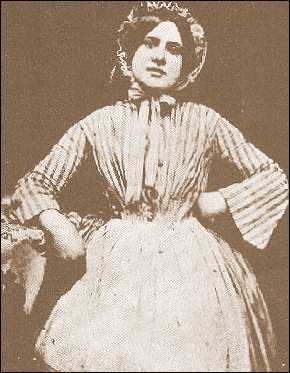"and yet you say this is a righteous government"
Back in April and early May, voters took their responsibility seriously. Viewing figures were high when the party leaders debated plans and policies.
 The young people I knew, voting in a General Election for the first time, were particularly conscientious, reading on-line manifestos, attending meetings – even turning out applaud or argue with party leaders.
The young people I knew, voting in a General Election for the first time, were particularly conscientious, reading on-line manifestos, attending meetings – even turning out applaud or argue with party leaders.Some council officials hadn't expected the rush of voters. Polling stations ran out of ballot papers, made voters queue for hours and even turned them away at the end of their long wait. There were complaints, enquiries. Some polling stations faced a near riot. People wanted to be part of a democracy and were affronted when they lost their opportunity to affect the future of their country.
It didn't turn out like that. The politicians who found themselves in power quickly changed their views. The election result suggested divided opinions and fierce, unresolved debates. People really believed that a democracy gave them responsibility to think through political questions. On most days of the election campaign I found myself discussing political questions, sometimes with mere acquaintances or strangers encountered on a train. Most expressed frustration that no politician fully represented their views but they listened, read and chose the agenda that seemed nearest to what they wanted.
All we had to go on were the stated words and policies of the candidates. When politicians said they and their parties were opposed to torture, against arms sales, in favour of civil liberties or opposed to a surveillance society, we had to believe them. When candidates and their party leader signed guarantees to vote against any rise in students' tuition fees – and campaigned among students on the basis of that policy – they demanded our trust.
 They didn't give vague hints but firm undertakings.
They didn't give vague hints but firm undertakings.In the early days of the Coalition, there were hints that promises would be ditched and that the views of the electorate counted for little. If the electorate as a whole had voted for uncertainty, which implies further debate, the result could be ignored. We were to be given stability and firm government. “Politicians know best,” was the underlying message.
Some buzz-words from the campaign persisted. There were frequent references to fairness, freedom and the big society. Perhaps there were grounds to wait and hope for the best. Quite a few tories attacked state repression under the last government. It seemed reasonable to hope they would take their own statements seriously. While the cabinet seemed to include too many public-school and Oxbridge-educated millionaires, surely they would notice the limits of their own narrow experience of life, at least to the extent of seeking advice from other party members?
Gradually hope faded. Ending detention of child asylum-seekers wasn't immediate and didn't mean exactly what it said. Guidelines were changed so that quite young teenagers, who arrived in Britain alone, could be deported to war zones. Deportations - by private companies working for profit - continued to be brutal. One man died - the investigation continues. Passengers who objected to what they saw as brutality were bundled off their flight and held under anti-terror legislation.
There's worse. Craig Murray joined the Liberal Democrats and campaigned for them because they opposed evidence from torture. His analysis of the recent speech by MI6 head John Sawers suggests that Liberal Democrat ministers now accept "evidence" gained from torture overseas, implicitly encouraging the continuation of torture.
ID cards were scrapped but a new form of surveillance was encouraged. Every e-mail, web-search or telephone call made by a British resident is to be logged for government scrutiny. The excuse is the familiar one: the everlasting War on Terror. The census will probably be ended but instead private companies will be paid to gather data. The companies used already carry out investigations on our credit-worthiness. I'm not happy that the government should keep a file on me whose details combine my family circumstances and religious practices with details of my bank accounts and recent purchases.
Then there are the cuts. Party leaders knew - or should have known - they were coming. All three candidates for chancellor agreed the cuts would be severe - worse than anything we had ever known in the post-war period. Yet the candidates continued to make promises. Education Maintenance Allowances for 16-18 year-olds would be preserved. All Liberal Democrat MPs would vote against any increase in tuition fees. Whenever a pre-election promise was questioned, the party representatives assured us they had all been costed out.
Now they insist it's all different. Apparently what you say to win an election is different from the actions you take when the election is - more or less - won. We weren't supposed to vote for the manifestos or the promises. We were simply supposed to select the most personable liar.
You can still read the manifestos of the Liberal Democrats and the Conservative Party. Traces of the parties' campaign promises survive on-line. They ring hollow now.
So do Coalition protests that they didn't know how dire the economic situation was. Four days before the election I wrote about the ways in which politicians from all parties were ducking the question of the economy in favour of offering minor bribes to voters.
 There could have been a real debate. The voters were interested, eager to be involved. But the election was based on false premises and a series of policies and promises that were junked with little hesitation. What was the election worth? What was it about?
There could have been a real debate. The voters were interested, eager to be involved. But the election was based on false premises and a series of policies and promises that were junked with little hesitation. What was the election worth? What was it about?I suppose the election was about power - the government's power over us.
If our system of "democracy" is based on guesswork and false promises, how can we call it "democracy"? The people are supposed to have power - that's what the word "democracy" means. Without knowledge and honesty, we can't make the serious judgements required of us. But if we don't live in a democracy, what system are we in? I wonder how far I'm bound by the country's laws when they're passed by MPs elected on a platform of pretence.
Most of all I feel conned. I thought that words like "pledge" or "guarantee" stood for something. They didn't. Silly, silly me.
Labels: asylum, cuts, democracy, economics, election, freedom, honesty, lies, torture, vote







